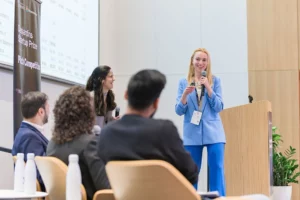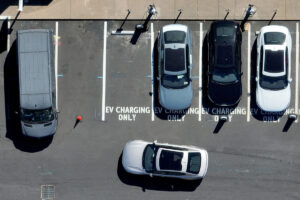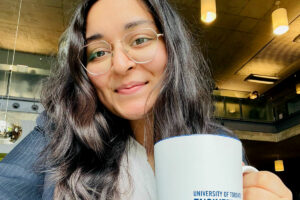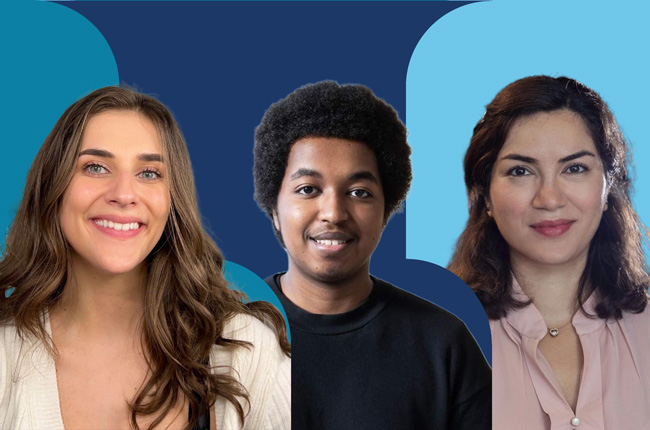
JUNE 15, 2023 • By Safa Jinje & Tyler Irving
With U of T Engineering's convocation ceremonies on June 20, 2023, our students mark the end of one journey and the beginning of another.
Having enriched the U of T Engineering community as undergraduate and graduate students, they will join our vibrant, global network of Skule™ alumni, where they will continue to address pressing challenges around the world and inspire the next generation.
This year’s 15 Grads to Watch — selected by their home departments and institutes — embody the spirit of U of T Engineering. Their stories illustrate the creativity, innovation and global impact that define our community. Watch their next steps!
"Mohamed Hirole, Parinaz Naseri and Anaïs Poirier have each demonstrated an excellence in ECE that makes them clear choices as Grads to Watch,” says ECE Chair Professor Deepa Kundur. “I’m impressed not only by their academic achievement but also their commitment to the engineering profession as an engine of positive change. They truly want to make the world a better place. I’m excited to see what they do next."
Mohamed Hirole (CompE 2T2 + PEY)
Blazing a New Path
“U of T Engineering is limitless,” says Hirole. “There are so many opportunities to take advantage of — extracurricular, professional or just for fun.
“Over these last couple years, I tried everything and stuck with the hobbies I liked the most.”
Hirole joined the University of Toronto Aerospace Team in its Space Systems division, building a cube satellite that helped him gain critical design skills and strengthened his ability to work on teams. He also joined the National Society of Black Engineers U of T Student Chapter, and was part of the team that founded NSBEHacks, the first Black student-run hackathon in the GTA. The following year, he became president of NSBE-U of T.
“In this position, I wanted to give a platform to other minority students by planning a bunch of on-campus events with companies such as Google, Shopify and Microsoft,” he says. “I also wanted to share my own journey to inspire others.”
Last summer, Hirole completed a PEY Co-op internship at Twitch in San Francisco, and he plans to return there full time upon graduation. He says that his time at U of T taught him how to be resourceful and self-sufficient.
“Throughout my studies there were numerous times where I didn't know what to do or how do it,” he says. “I cultivated the skill of learning to skim extremely technical documents for the info I was looking for. I think my studies have given me an ability to try to figure things out for myself, but I also learned to reach out to others for help when I need it.”
“I’d like to thank my parents, ECE department and faculty, NSBE and UTAT communities, and all the supportive friends I’ve met along this journey. Special shoutout to Dylan Vogel (EngSci 2T1) and Ali Haydaroglu (EngSci 1T9 + PEY) from UTAT Space Systems division. They created a very fun and welcoming atmosphere. There were moments where I doubted myself, but everyone’s support helped me push forward. Sometimes self-doubt is an invitation to be greater."
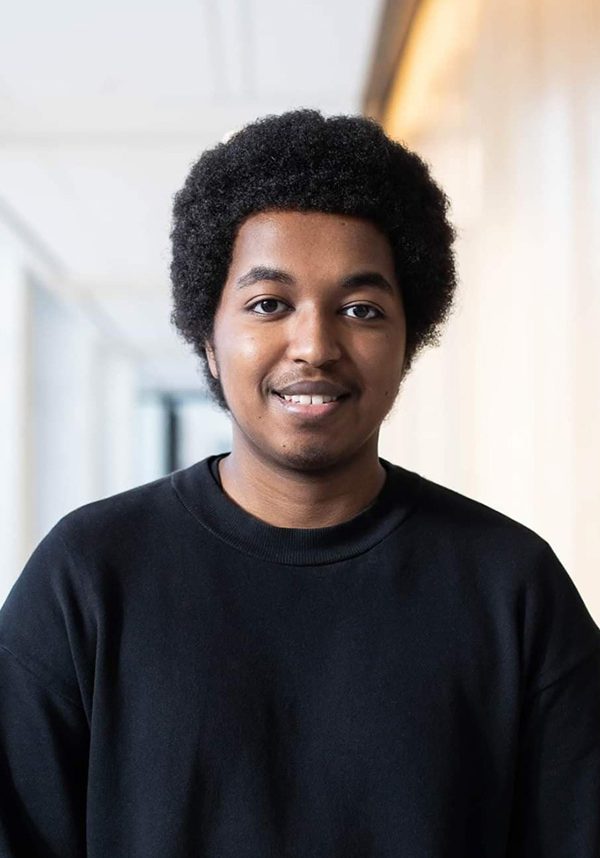
Parinaz Naseri (ECE PhD 2T3)
Transforming Mining Technologies
In her thesis, Naseri employed machine learning techniques to efficiently design electromagnetic metasurfaces.
“In the last few decades, these judiciously designed materials have revolutionized many applications that involve electromagnetic wave transformations,” she says. “This includes optical and wireless communication systems, ranging from enabling micro-sized cameras for human-body monitoring to profile reduction of satellite antennas used for remote sensing.”
During her time at U of T Engineering, she was proud to be the recipient of many scholarships, including the Outstanding New Leader Award by the Institute of Electrical and Electronics Engineers (IEEE) Toronto Section, the IEEE Antennas and Propagation Society Doctoral Research Grant, and the U of T ECE Donald R. Studney Electromagnetics Graduate Award.
She was also a part of the U of T International Students' Caucus Group and the U of T chapter of SPIE/OSA.
“I’m especially proud of establishing the first IEEE Antennas and Propagation Society student branch chapter at ECE in 2020,” Naseri says.
“As the chair of this chapter and with the help of other volunteers, we created a venue to support electromagnetics graduate students' mental health, technical and professional endeavours, especially during the isolation of the COVID-19 pandemic.”
Naseri is now working as a senior antenna and hardware engineer at Novamera Inc., a startup that develops surgical mining technologies to reduce the waste and cost of extraction of necessary metals.
“I am very proud to put my knowledge and training in electrical engineering, electromagnetics and machine learning toward a clean technology that impacts the future of our planet Earth,” she says.
“So many individuals and communities at U of T saw my abilities and provided me with opportunities and support so I could shine and grow. And for that, I'm forever grateful.”
“I'm extremely grateful to my PhD supervisor, Professor Sean V. Hum (ECE) for supporting me as I experienced different aspects of my PhD journey — from research directions that I liked to pursue to lab management, course instructor positions and being a student chapter chair. I'd also like to thank the electromagnetics group graduate students for their friendship. I wish them all the best in what's ahead."
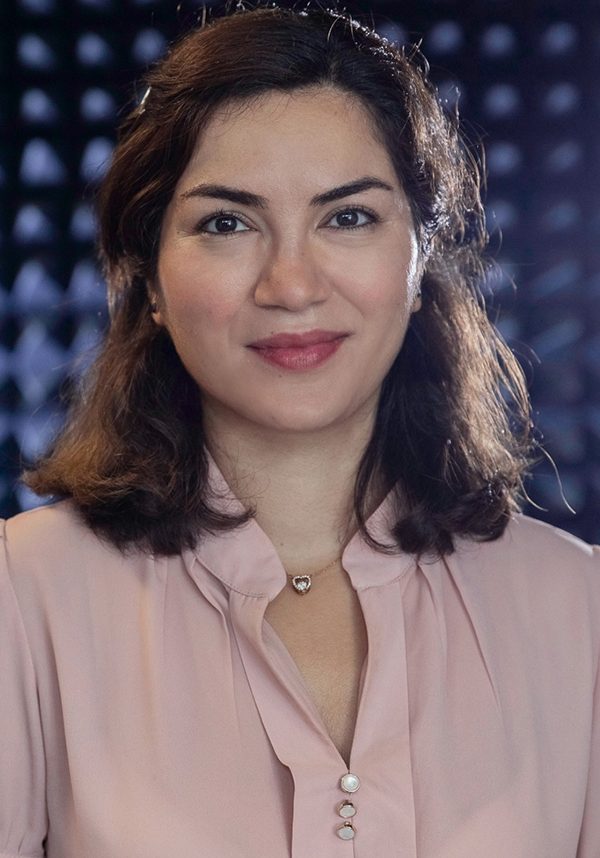
Anaïs Poirier (ElecE 2T2 + PEY)
Elevating Global Health
Poirier feels a strong sense of fulfillment when she looks back on her time at U of T Engineering.
“Coming into first year, I wasn’t confident I would be able to make it through,” she says. “But my parents urged me to try it for one year and reassured me I could easily switch into a different program if it wasn’t the right fit.”
Yet what she found in engineering was an opportunity to affect real change — and that is how she plans to use her degree.
For her PEY Co-op, Poirier moved to Kentucky to work as a software engineering intern at Space Tango, a microgravity research company. She contributed to research from exploring cures for retinal degenerative diseases, to understanding why people develop diseases, to supporting human life in space.
During this time, a colleague suggested she apply for the Zenith Canada Pathway’s Fellowship, Canada’s first space fellowship, which aims to build a more inclusive Canadian space sector.
“I was selected as a fellow in the inaugural class, leading to a summer internship at GHGSat,” Poirier says. “I got to experience the positive global impact that working in the space industry can have.”
Poirier will be moving to San Francisco after graduation to work as a software engineer at Zipline, where she will test flight hardware. The company, which manufactures drones that serve as eco-friendly delivery vehicles, delivered over a million Covid vaccines to Ghana.
“Zipline is the world’s largest instant logistics company with the mission of creating a delivery service that impacts global health access, improves economic opportunity, and helps to protect our planet,” she says.
“I am excited to be working in a multi-disciplinary role that will use both the electrical and computer sides of my degree, and for a company whose mission I strongly believe in.”
“I would like to thank the Skule™ community, my Skule™ Spirit Head family, the strong and resilient women who have inspired me in this field, the community at Zenith, my roommates and friends. But most of all, I want to thank my parents for being my biggest support system and always believing in me. There have been many times where I’ve felt defeated and ready to give up, but the support I’ve received encouraged me to keep going. I could not be more grateful for where I am today. "
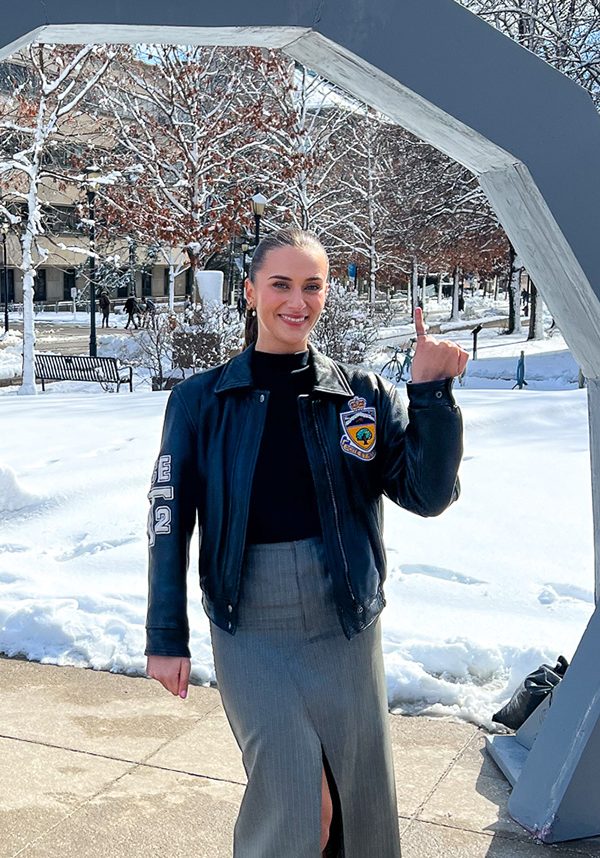
See story from U of T Engineering News for full list of Grads to Watch, with files from Matthew Tierney
